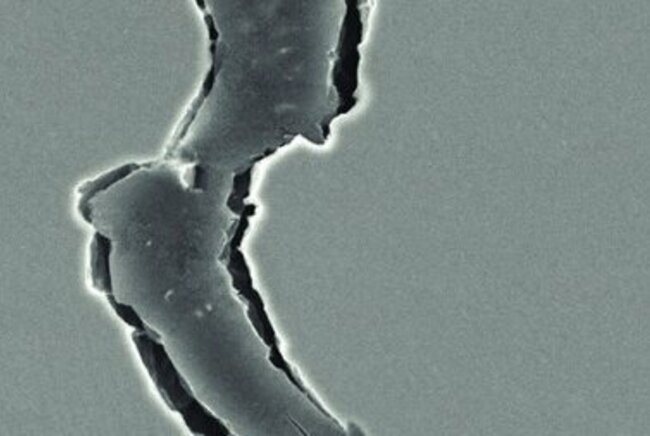Understanding durability: multi-scale modeling of failure in cast iron
Aslan Mohammadpourshoorbakhlou defended his PhD thesis at the Department of Mechanical Engineering on February 2nd.

In the realm of industrial machinery, power generation equipment, and automotive sectors, Cast Iron, particularly Compacted Graphite Iron (CGI), stands as a cornerstone material renowned for its robustness and efficiency. CGI finds extensive applications in heavy-duty truck engines, where its exceptional strength and thermal efficiency play crucial roles in enhancing engine performance. With his PhD research the primary objective of Aslan Mohammadpourshoorbakhlou was to introduce a framework for predicting the behavior of CGI. This framework, in the future, could assist engineers in developing designs that are more environmentally friendly and reduce the need for iterative experiments in the design of automotive components, such as engine cylinder heads used in truck engines.
Compacted Graphite Iron (CGI) is an advanced material extensively used in industries such as power generation equipment, industrial machinery, and the automotive sectors. A notable application is its use in heavy duty truck engines, where it is valued for its strength and thermal efficiency. This research delves into the behavior of CGI under various conditions, focusing particularly on its durability under heat and mechanical loads — critical factors in engine performance.
Exploring CGI's durability
The research employs a technique known as microstructural analysis, which involves a detailed examination of CGI's unique material structure at the microscopic level. By scrutinizing the material at this scale, we gain insights into CGI's durability under engine conditions. The model investigates the degradation at the interface where graphite and pearlite, the primary phases of CGI, meet. It also assesses the progression of damage throughout the material. These steps are vital for understanding the material's overall strength and its durability under thermal and mechanical loads.
Advanced modeling and simulation
A series of advanced computer models and simulations are utilized to replicate real-life engine conditions. These models aim to predict CGI's behavior under various temperatures and stresses, facilitating improvements in engine design. The findings indicate how long CGI can effectively endure the high temperatures and mechanical loads in truck engines, guiding us in making design choices that enhance engine performance while reducing fuel consumption and emissions.
Enhancing engine performance
This research not only provides a deeper understanding of CGI's properties but also establishes a framework for predicting its behavior in practical applications. This knowledge is instrumental for developing more efficient and environmentally friendly engines, thereby contributing to advancements in automotive technology.
Title of PhD thesis: Multi-Scale Physical Modeling of Failure in Cast Iron due to Thermo-Mechanical Fatigue. Supervisors: Prof. Marc Geers, and Dr. Varvara Kouznetsova.